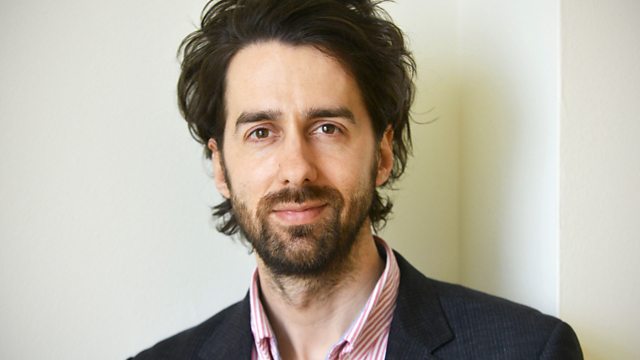About the Book
“In this relatively short yet incisive book, Jamie Bartlett presents us with the key challenges that Western democracy will face in light of growing technology companies. The People vs Tech highlights six pillars of democracy and shows how unrestricted technology corporations might weaken each of them. These pillars are: 1) Active Citizens; 2) Shared Culture; 3) Free Elections; 4) Stakeholder Equality; 5) Competitive Economy and Civic Freedom; and 6) Trust in Authority. Through interviews with key individuals, including employees from Cambridge Analytica, ex-Facebook executives and artificial intelligence start-up founders, Bartlett is able to complement his broad knowledge with first-hand experience of some of the most exciting areas emerging within the fields of technology and politics” – LSE Book Review
What’s the most terrifying outcome for democracy if technology wins the people vs tech battle?
That we drift into a comfortable, efficient technocratic society where freedom is seriously diminished but most people don’t much care because they have excellent gadgets, convenience and stability. This is frightening mostly because it’s plausible. On the current trajectory I predict the slow erosion of the effectiveness of democratic institutions – things like moral autonomy, legitimate elections, a strong local press, manageable levels of inequality, institutions that can hold power accountable. These are the quiet and boring things that make democracy work as a meaningful system: and therefore people will not notice or care too much for their decline. A return of machine smashers and Unabombers is a close second.
In your opinion, what are the true dangers of phone addiction and what can we do to change things?
That the attention level of an entire nation diminished on aggregate by 30 per cent. I am less and less able to focus seriously on complicated ideas for more than a few minutes at a time, without wondering if anyone has contacted me, or tweeted me, etc. What happens though to a society that is less and less able, overall, to focus and concentrate? We become imperceptibly more irritable, more prone to simplistic answers, more easily swayed by the mob, less able to see nuance in ideas. In short, the whole of politics becomes more populist in its style. This, in my view, is exactly what is happening.
There is no easy answer to this problem of course. One is for people to realise and understand what is happening and start to see focus and attention as something that needs to be worked on like fitness or diet. You have to cultivate it and practice it. That means having switch off times, not checking phone before bed, practice the art of reading with your phone in another room entirely, weekend breaks – whatever works for you! This is not only good for your mental health – it’s part of your duty as a citizen.
Have you felt any hostility from the tech world for exposing some of their manipulation tricks in this book?
Not at all. I think that many people within the tech world are also worried about these trends, and are genuinely surprised about how their tech has been used as well. Most of them genuinely believe their tech is liberating and helping people. At the moment, I think they are in listening mode, and are open to criticism. Who knows how long that will last, however! And of course, I don’t know what they are saying in private…
Did you have to think twice about describing Donald Trump as a “bona fide politician of the social media age […], Twitter addict and world class simplifier,” given his reactive and troll like presence on Twitter?
Of course not! His reactive and troll like presence on Twitter is exactly why he is a bona fide politician of the social media age. If you mean however that he might have reacted to my book – then obviously this would have been the best publicity imaginable, which would have proved my point and boosted sales. Sadly, nothing yet!
Trump’s campaign “relentlessly bombarded millions of Americans online with pro-Trump content” using big data, micro-targeting, and spending millions of dollars. How is it that a project like Alamo, that is realistically a project fuelled by manipulation, is legal?
For two reasons. Firstly, because so much of ordinary advertising is based on this technique of profiling and targeting and has been for some time. Politics is merely adopting the latest in ad-tech. Second, because the laws haven’t really changed when it comes to political campaigning since the days of TV and billboards. So clearly there needs to be an update to existing regulations to make sure, for example, there is at least transparency in online political adverts. I think that most countries will pass laws to that effect in the next few years.
Do you think human emotion as we know it is altering because of the advancements made in the tech world? Such as cashiers being replaced with machines? What do you think is happening with communication and our ability to socialise because of it?
This is a big question! I don’t think I can answer it fully, you’ll need a cyber-psychologist. (Although I’m sure the day isn’t far off that someone falls in love with an automated cashier voice!). In terms of politics, I have several worries. Chiefly, the de-personalised form of communication online makes us less likely to take our political opponents at ‘face value’. It’s far easier to misinterpret, to caricature, to invest them with all sorts of moral failings. This is why I think politics online is increasingly tribal – not about ideas but whose side your own. That’s always existing in politics, but internet debate turbo-charges it. And too much tribalism in politics makes compromise more difficult, which is the essence of politics.
What’s the best possible outcome of this people vs tech battle we’re amidst?
That democracy itself finds new ways to use this exciting technology to upgrade and update. After all, technology has transformed so much of our lives as consumers – our shopping, news consumption, music, love life, travel – and yet arguably the most important of all, our politics, has barely changed one jot. So it can be used to bring new voices in, new forms of representation, new ways of our elected officials listening to people’s concerns, and so on. It will be difficult of course – but it’s essential we do because no system of government can exist indefinitely that’s entirely out of step with the technological norms and mores of the day.






